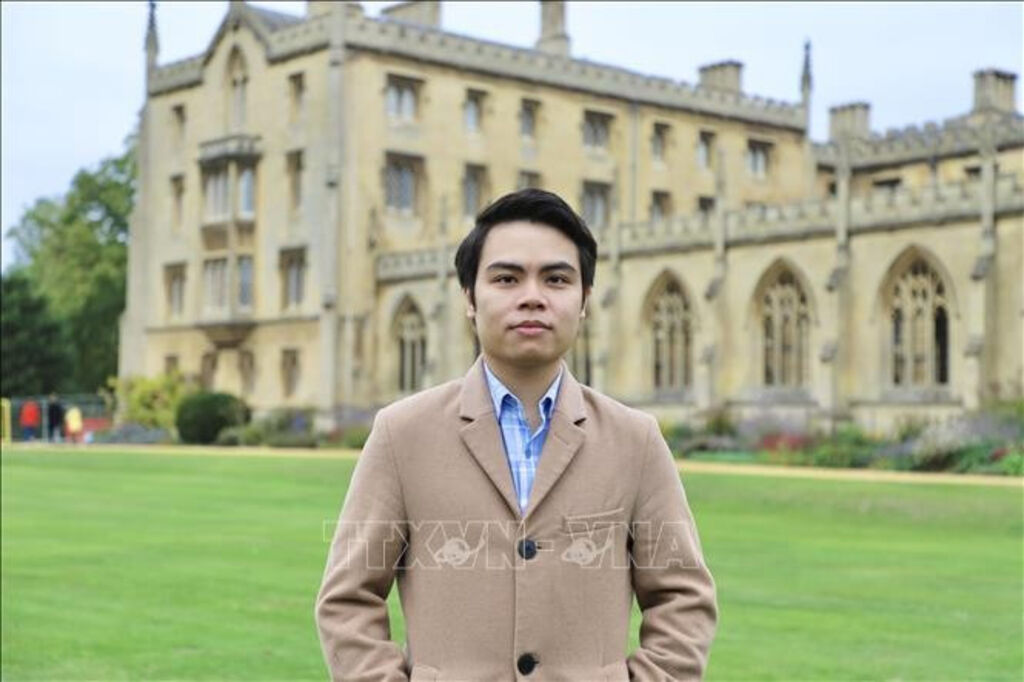 |
| Dr Vu Viet Anh, a researcher at the Cambridge Cybercrime Center__Photo: VNA |
Vietnam’s hosting of the signing ceremony for the United Nations Convention against Cybercrime (Hanoi Convention) on October 25–26 marks a major step forward, underscoring the country’s proactive role and sense of international responsibility in cybersecurity, according to Dr Vu Viet Anh, a researcher at the Cambridge Cybercrime Center.
The event will not only elevate Vietnam’s global standing but also contribute to building a global legal framework, enhancing information sharing, and improving cross-border crime-tracing efforts, Anh told the Vietnam News Agency’s correspondent in London.
He said the UN’s selection of Hanoi as the host city demonstrates the international community's trust in Vietnam’s efforts and credibility.
In recent years, Vietnam has made significant progress in developing its cybersecurity legal framework, protecting personal data, and strengthening cooperation with international organizations to combat hi-tech crimes. The enactment of the Cybersecurity Law, effective since January 2019, is clear evidence of Vietnam’s strong commitment to global cooperation, he noted.
Anh emphasized that the Hanoi Convention is the first UN treaty on cybercrime in more than 20 years since the signing of the Budapest Convention in 2001. The document is highly symbolic as it positions Vietnam as a trusted bridge between developed and developing countries, promoting dialogue grounded in equality, respect for sovereignty, and mutual benefit. In a context where nations hold divergent views on cyberspace governance, the consensus reached at this event reflects Vietnam’s skillful multilateral diplomacy and ability to foster global consensus.
According to the researcher, hosting the event marks Vietnam’s evolution in international relations—from a participant to an active contributor to the shaping of global norms and rules. It also affirms Hanoi’s image as a safe and friendly destination capable of organizing major international events, while opening up opportunities for cooperation in digital transformation, cybersecurity, and the digital economy. The event aligns with the Politburo’s Resolution 57-NQ/TW on promoting breakthroughs in science – technology, innovation, and national digital transformation.
The convention establishes common standards and a comprehensive legal cooperation framework, enabling countries to coordinate investigations, share evidence, and prosecute hi-tech crimes more effectively. It also standardizes definitions of offences such as unauthorized access, data theft, online fraud, money-laundering, online child exploitation, AI-related crimes, and disinformation. In addition, it details provisions on electronic evidence, cross-border data sharing, and privacy protection in transnational investigations—balancing international cooperation with respect for sovereignty and human rights, he added.
Anh warned that cybercrime transcends territorial and legal boundaries, exploiting gaps between national frameworks. Over the past two decades, both the volume and sophistication of cybercrime have surged, with traditional crimes such as theft and swindling shifting online, while rapid advances in AI and anonymous digital assets have created new and complex threats.
He suggested that Vietnam prioritize the protection of critical infrastructure, including healthcare, energy, finance, and citizen data, while developing incident-response and recovery plans and a long-term cybersecurity strategy that keeps up with technological progress. He cited the UK’s 2022–2030 National Cyber Security Strategy and the EU’s Digital Services Act as useful references.
Beyond domestic reforms, Vietnam should strengthen participation in international treaties, expand cooperation in information sharing and joint investigations, and invest in technologies such as AI and blockchain forensics to enhance threat detection and tracing, he went on.
Anh called for improving public awareness through digital-safety education, especially among vulnerable groups like the elderly and students, and also stressed the need to balance security and privacy.- (VNA/VLLF)









